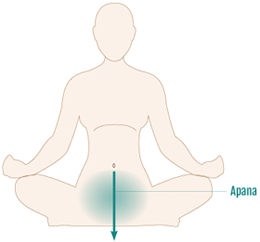
Living in the modern world and being a menstruating woman is not an easy combination. In a culture that makes it easy to skimp on sleep, eat unhealthy food, and stay indoors away from the natural world, connecting our bodies to the rhythms of nature can seem difficult. However, getting extra sleep, eating whole, nutritious foods, and immersing yourself in nature are all essential for a healthy life, and in the case of women, a healthy period.
It is no surprise, then, that the majority of women experience pain during their period, a phenomena referred to as dysmenorrhea. Painful periods are often the result of contractions that happen in the womb during the time of menstruation, which are identified by many as cramps. However, at their worst, these painful contractions can result in more intense experiences such as nausea, vomiting, diarrhea, and headaches.
While the exact cause of dysmenorrhea is not known by allopathic medicine, Ayurveda shines a light on potential lifestyle factors that can increase period pain, and remedies that can not only reverse pain, but increase overall feelings of wellbeing both on and off your period.
Period Pain: An Ayurvedic Perspective
According to Ayurveda, during a woman’s menstrual cycle, the Apana vayu, which is connected to the vata dosha and governs the downward flow of energy in the pelvis, is working to cleanse the body of the uterine lining. The increased vata element in the body can result in symptoms such as anxiety, fear, and scatteredness, inability to focus, feeling cold, constipation, and tiredness. Because of the increase in the vata element, this cleansing cycle calls for vata-reducing lifestyle choices.

Since our culture values pushing ourselves to the limit and can make it difficult to carve out the time and space for extra rest, women, especially those who experience painful periods, have the task of advocating for themselves and setting boundaries around their time and lifestyle choices.
Ayurvedic lifestyle guidelines, which are tailored to a person’s specific body constitution, support a healthy body and mind, and if followed, will inevitably lead to easier periods. However, no matter your body type, all women are recommended to follow vata-reducing measures while menstruating.
Here are a 3 tips for period pain relief and supporting a healthy period:
1 Eat warm, cooked foods
While seemingly simple, this advice can actually pose a challenge for many women, who prefer a diet of raw vegetables and uncooked foods. However, the period is an essential time to eat simple, unprocessed, cooked foods. Most importantly, stay away from raw foods such as salad, raw vegetables, unsoaked nuts, beans, sugar, and processed foods. Opt for warm tea, and make sure to stay hydrated with room temperature water.
2. Minimize exercise (at the beginning)

For the first three days of your period, avoid vigorous exercise, which can direct the energy away from the cleansing process occurring in the uterus. Instead, go for walks in nature, enjoying the natural light and beauty around you, and practice gentle yoga. According to a 2010 review of over 81 studies about yoga from the University of Maryland School of Nursing, yoga is highly beneficial for safe, healthy and pain free periods. However, if practicing yoga, do not enter inverted poses, which counter the downward flow of the apana vata energy.
3 Get plenty of rest
That’s right, sleep! Falling and staying sleep can be hard enough, and during periods it can get even more challenging, says research. Go to bed before 10pm and if possible, allow yourself to wake up naturally, without an alarm. Even if your schedule does not allow for an alarm-free morning, be sure to minimize overexertion, and give yourself permission not to push yourself hard at work and in social situations. Don’t worry, a few days of relaxed behavior will result in extra focus and energy once you are off your period.
Start with these three basic lifestyle changes, and tune into the changes that occur in your mood and in your body. Most importantly, take advantage of the resting time and tune into any messages that your body and mind might have for you. Take care of your period and your period will take care of you!
By Lucia
This content is not intended to be a substitute for professional medical advice, diagnosis or treatment. Always seek the advice of your physician or another qualified health provider with any questions you may have regarding a medical condition.





























